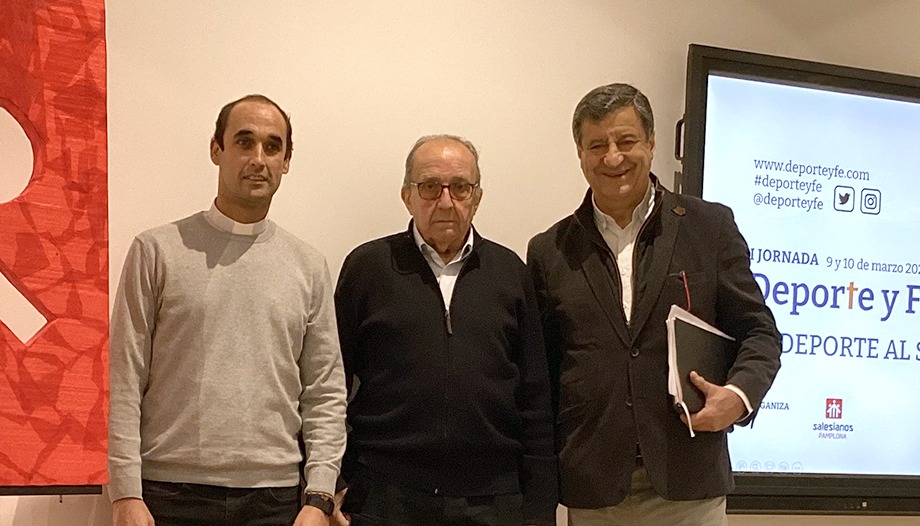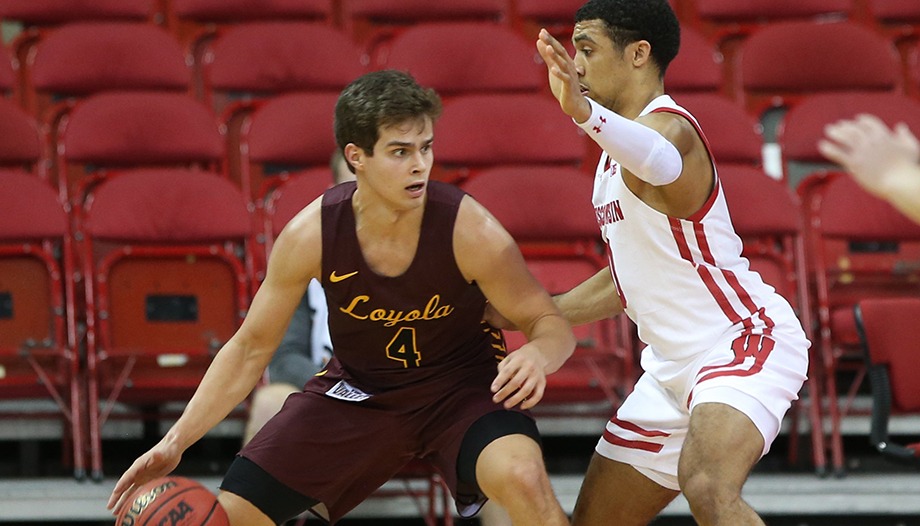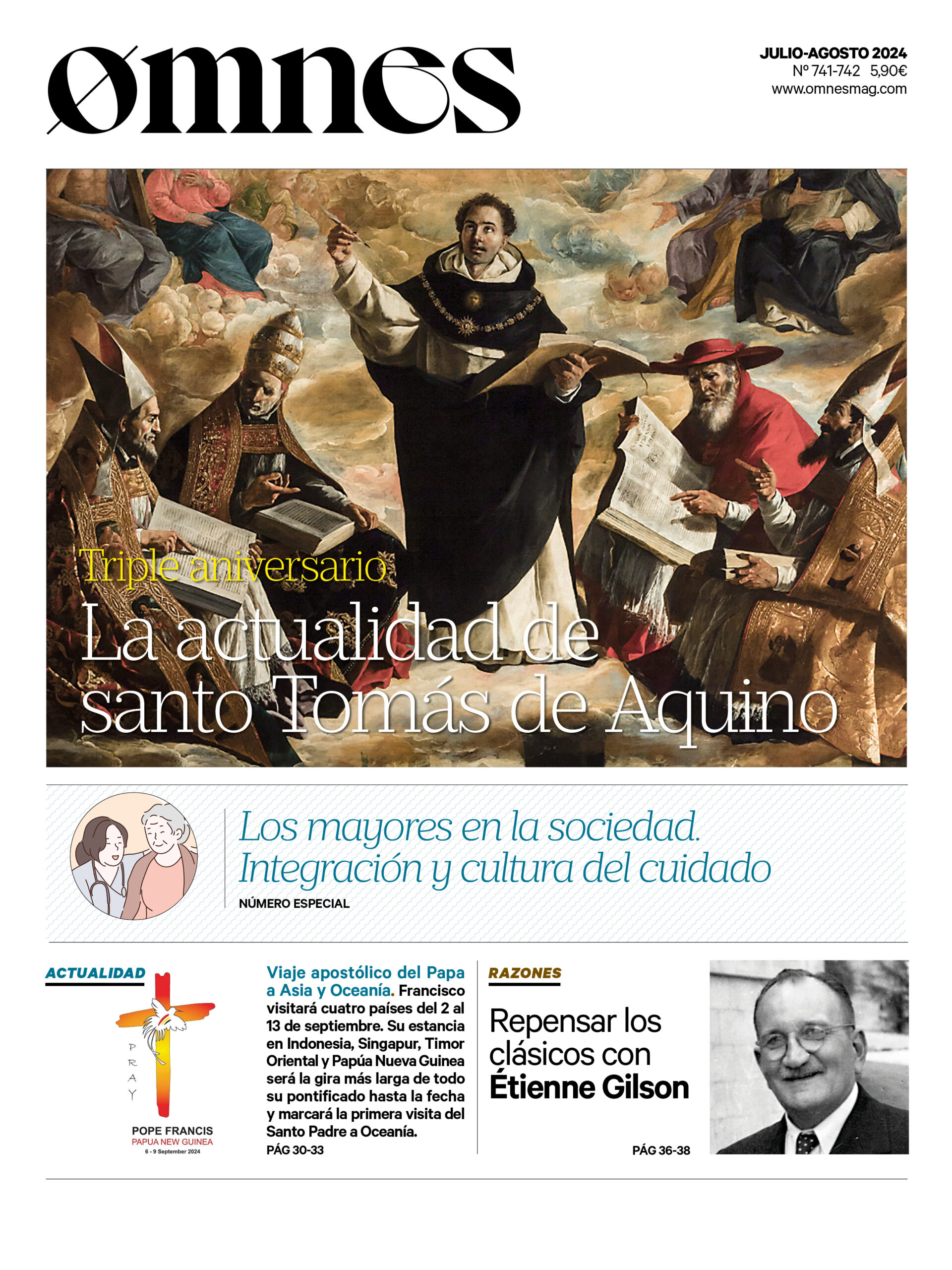




















On March 9 and 10, the headquarters of the Salesian school in Pamplona will be hosting the I Conference Sports and faith. A meeting organized by Salesianos Pamplona, in collaboration with the Archbishopric of Pamplona and Tudela and that it wants to be "the starting point to take advantage of sport as an instrument of evangelization", as pointed out Litus Ballbe, priest and responsible for the Pastoral of Sport of the Spanish Episcopal Conference at the presentation of this event.
Ángel Miranda, director of Salesianos Pamplona, has talked to Omnes about this day in which will participate, among others, professional athletes such as Enhamed Enhamed, Paralympic athlete, directors of sports schools such as Ignasi Talo, Director Brafa Sports Center o Angelo De Marcellis, director of the Pastoral Sports Ministry in Teramo and president of the Italian Sports Center of the province of Teramo.
The Salesian Family has always paid great attention to sports as an area for the development of human and Christian virtues. How is the practice of sports conceived within this vision of faith?
-The question posed has two implicit questions, one more focused on the Salesian approach to the subject and the other on a general vision of sport.
When the Salesian family considers the identity of any of its presences, it refers to the original focus of the pastoral proposal of the Salesian Family. Don Bosco which is synthesized in four words to define each work as "house" for those who do not have one, "school" for those who do not have one, "church" for those who do not attend it, and "courtyard" where to meet and live with friends.
It is clear that the practice of sports is easily framed within the Salesian "courtyard" (some ecclesial documents place it, curiously enough, within the "courtyard of the Gentiles" as a great clue to the believing conception of the practice of sports.
When it comes to contemplating sports practice from the perspective of faith, perhaps someone will try to take a look at it from the perspective of faith. middle way proposing Jesus in long "athletic marches" or nautical sports on the lake, more or less "underwater" fishing, or perhaps mountaineering, supposedly at the service of the mission.
The meeting that is being prepared is not so much along these lines as in an approach more oriented to the "dialogue" between the practice of sports and faith. A dialogue that assumes an anthropological vision of the person who practices, who directs, who animates or who in one way or another approaches the practice of sports.
In other words, the conference was born from a double question. On the one hand, if in the practice of sport your "doing" qualifies and enhances the "being" of the people who enter your field. On the other hand, if, as a practitioner or user of sport, you are able to discover or find in sport some keys that open you to a vision and meaning of life where the believing dimension of the person has a space. That way it is possible to open the way to a reading of the practice of sport, if not better, at least different.
What does sport bring to young people in their Christian life?
-First of all, it is important to emphasize that the design of our day is perceived more as an opportunity for an open dialogue between the practice of sports and faith, also for any young person, of any confession, of any experience and level of development of the transcendent dimension of his or her life.
Nevertheless, speaking from our Christian perspective, it does not hurt to remember that the Church serves the extension of the Kingdom in four ways: the proclamation of the Kingdom, the encounter in the community, the celebration of faith and life, and the service to our brothers and sisters.
Without pretending to develop this reflection, and sticking to the meaning of the question, it is easy to discover in sports practice traits of these four dimensions of ecclesial service insofar as it announces and transmits values of encounter, coexistence, help, availability; it is a place of encounter, collaboration, ability to share goals, coexistence; it makes possible the integral development of the person in the environment of concrete values and, in addition, it becomes a time and space for joy, celebration and improvement of coexistence.
Another thing is to remain in the external signs, ... the sign of the cross in its infinite varieties of speed and gesture when going out to the field, the protective stamps inside the luggage, the sending to heaven or to the unknown infinity of the triumph and so many and many ... evocations of a "something" or of a "someone" more or less close that surpasses us and raises deep questions to the life and to do of our day to day. As you will understand, this opens a whole track to that double reading of what sport brings to the person who is in the process of contemplation, openness, socialization, projection of one's own existence and the possibilities of a sport practice that favors the physical, social ethical development and, why not! the opening to the transcendence of individuals and groups.


We often get to know incomplete sides of sport: either the top stardom or the "underworld" of different disciplines. How can we avoid these two slanted views of sport and get to know it and experience it in a holistic way?
-I place this question in the look. The "look" belongs to the person. It is the person who, in different ways, perhaps in different ways, looks, sees, contemplates, admires, celebrates, and shares or practices the sport activity.
It is or are the people who applaud, shout, comply or not comply with regulations, hire, pay, reject or collaborate, with more positive or negative visions of the practice of sports. As the Gospel says, what "comes out" of us, from the heart, is what stains, not what enters...
That is why our perspective towards young people is fundamentally educational. Enabling young people and, why not older ones, practitioners to learn to win and lose, to be the most brilliant or the good collaborator, to value their own success and that of others, to be a starter or a bench player, to accept or reject the other, the different, to strive to improve, to respect the rule and the law, ... We can go on! Only in this way, although we will not "avoid" the "slanted" looks, we will be helping the growth of generations of people with healthy critical approaches to so many ethical, economic, social and not only sporting "slants" that we discover in our environment.
What role do educators and families have in the growth of virtues through sports practice?
-I think it is pointed out in the tone and content of the conversation we have been having. And here, the social vision and the plural praxis of the family reality will require an almost kaleidoscopic view of the role that all of them can and should play.
Assuming the family as first and foremost responsible for the education and integral development of their children, it is clear that, to the extent that sport is part of their reality and life, it will be necessary to admit functions of support, control, adaptation to reality, establishment of educational priorities and positive channels of socialization through sport, harmonization of ideals and goals, etc. and all within the horizon of a sport practice that, in the process of integral development of the person, is a "means" and not an "end" determining the meaning of life of young people.
And here, a complementary question arises that has to do with the "education of parents" who, beyond the environment, the media, personal or group images or criteria of educational and social integration, need to "learn to choose and accompany" the processes of growth and integral development of their children.
Transferring this approach to the activity of educators, coaches, monitors, sports organizations, sports policy makers, companies providing financial support, etc. to the frame of reference of our meeting, we will discover that we are more in a phase of search than of response, of project than of results, of dialogue than of debate, and all with that which we normally understand as "sports spirit".
In the case of this Sport and Faith Day, how was the proposal born? What were the inspirations for the different presentations?
-Last October, a meeting of people and institutions related to sports took place in the Vatican under the slogan "....Sports for all"The event was attended by entities from different levels of the Spanish Church and was subsequently echoed in the proposal for a specific national conference on the subject, which has been crystallizing under the organizational support of several entities of the Church in Navarra.
For this purpose, we count on an environment and a rich local history of people and organizations close to the professional and amateur sports activity, generating over time the identity traits of the people and the town in the environment of a popular sports activity with undeniable fruits of social integration.
In this frame of reference, the group of educational-cultural entities has not been lacking in coherence with its believing reflection on the pastoral care of or through sporting activity, which proposes the convenience of making a reflection open to dialogue between two realities that form an indivisible part of its ordinary activity.
We are therefore talking about a day of creative and imaginative dialogue on the possibilities of generating processes of integral growth of people through a sporting activity where there is no lack of values and experiences of development of a sense of life open to transcendence. A very concrete activity of dialogue between faith and culture, where sport is made present as "good news" for our recipients and the practice of sport as an aid to the growth of people in their level of openness to the "Good News" of Jesus and the Church.
A day that has tried to harmonize different contents and messages around the idea of a Church open to the world of sports, personal experiences of living the faith in the practice of sports, the organization and development of sports according to the educational-religious identity, if any, of the organizations and the exchange of lines of social commitment from sports. The day will also close with a more group and assembly work on proposals for pastoral action in the environment of sports activities.












